
Partnership for Conflict Crime and Security Research
The Partnership for Conflict, Crime and Security Research (PaCCS) was established by RCUK (now UKRI) in 2008 as the Global Uncertainties Programme with an aim of delivering high quality and cutting edge research to help improve our understanding of current and future global security challenges. With a historic focus on broader areas of global uncertainty, the partnership presently focuses on the core areas of conflict, cybersecurity, and transnational organised crime. We support research, build connections amongst our research community, and explore the results of UKRI-funded research projects in our core areas, with the aim of facilitating knowledge translation and research impact. PaCCS has supported collaboration by bringing together researchers from across disciplines to work together on innovative research projects. By creating opportunities for knowledge exchange between government, industry and the third sector, activities funded under PaCCS continue to deliver impact beyond the academic community. The Arts and Humanities Research Council (AHRC), Engineering and Physical Sciences Research Council (EPSRC) and Economic and Social Research Council (ESRC) are core members of the Partnership. The Biotechnology and Biological Sciences Research Council (BBSRC), Medical Research Council (MRC) and the Science and Technology Facilities Council (STFC) are affiliated members.
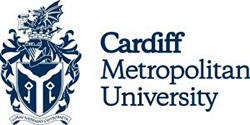
Cardiff Metropolitan University
We trace our history back to 1865, when the School of Art first opened in the Old Free Library in Cardiff. Since we developed into a university, we have remained rooted in Wales while providing practice-focused and professionally oriented education to students from around the globe. Our vision emboldens this commitment to education, research and innovation undertaken in partnership with our students, governments, business and industry and with tangible benefits for individuals, society and the economy. We are committed to ensuring that every student fulfils their potential to make outstanding graduate-level contributions to their own and future generations. Our reputation as the university judged to have the highest quality research amongst ‘post 92’ universities in the most recent UK Research Excellence Framework (REF 2014) will be strengthened through the creation of Global Academies for world leading interdisciplinary and international research and innovation with impact. Ours is a truly international university with students from over 140 countries and our growing reputation and size will ensure more leading international academics and students choose to work and study at Cardiff Met.

Cardiff University
Founded in 1883 and located in the thriving capital city of Wales, Cardiff University is an ambitious and innovative university, intent on building strong international relationships while demonstrating its commitment to Wales. The University ensures its research has global impact by working across disciplines to tackle the major challenges of our time.

Cranfield University
Cranfield University is one of the world’s leading universities for defence and security education, research and consultancy. Our staff and facilities are at the forefront of their fields, offering a diverse range of capabilities from energetics and forensic sciences to international stabilisation, counterterrorism and cyber security. Cranfield provides specialist knowledge to industry, security and emergency services, military, governments and NGOs, underpinning defence and security sector reform around the world. As a postgraduate academic provider to the UK’s Ministry of Defence, we offer a unique gateway to delivering practical education and solutions that make a real difference to the lives of military, security and civilian personnel. Cranfield is leading the Academic Resilience and Security Community (A-RISC), a network of 30 UK universities formed to help Government and industry access academic experts and the latest research and knowledge in national security.

University of Exeter
The University of Exeter is a Russell Group University combining world-class education (Gold rating – TEF 2017) and research. Located in the South West with 4 campuses, Exeter has over 25,000 students from more than 130 countries and over 2,000 academics. It is in the top 1% of universities worldwide (QS World University rankings), with 98% of its research rated as being of international quality (REF 2014). Exeter is an ambitious, outward looking University with a clear strategic vision to provide cutting-edge class research focusing on some of the most fundamental issues facing society today. It has a clear focus on Security matters with academics from a range of disciplines contributing to Security research and discourse. Our academics have advised and work with national and international governments as well as various government departments and agencies on Security issues such as the Home Office, FCO, Cabinet Office, MoJ, MoD, Dfid, Crown Prosecution Service and Police. Priority areas of expertise and research relevant to the Security domain include: advanced materials and manufacturing; cyber security and advanced systems; data science and AI; Environmental Intelligence (climate resilience & security); microbes, disease and synthetic biology; human sciences and human factors; strategy and security; business leadership and law.

University of Hertfordshire
With its heritage in Britain’s pioneering aeronautical industry, the University of Hertfordshire has been an innovative force in education since the early 1950s. Today, it hosts a thriving community of more than 25,000 students who study 300 flexible degree options at a vibrant, inclusive, campus-based institution. Alongside TEF Gold rated teaching, the University’s strong relationships with industry and award-winning careers services ensure students gain the knowledge and skills they need to match their ambition and succeed. The University of Hertfordshire has been an anchor institution for the regional economy and community since its beginning. Through its all-campus incubator ethos and status as an Enterprise Zone, the University gives hundreds of local businesses the support and facilities they need to learn and grow each year. Globally, the University partners with institutions in countries the world over, as well as welcoming 4,000 students from over 100 countries to its campus in the UK. Home students are also encouraged to take the opportunity to experience studying abroad at one of over 170 Universities worldwide. At the University of Hertfordshire students, staff and businesses consistently reach their full potential. They continue to think bigger, stand out and positively impact local, national and international communities.

Imperial College London
Imperial College London is one of the world’s leading universities. The College’s 16,000 students and 8,000 staff are expanding the frontiers of knowledge in science, medicine, engineering and business, and translating their discoveries into benefits for society. Founded in 1907, Imperial builds on a distinguished past – having pioneered penicillin, holography and fibre optics – to shape the future. Imperial researchers work across disciplines to improve health and wellbeing, understand the natural world, engineer novel solutions and lead the data revolution. Imperial has six Global Challenge Institutes which help drive interdisciplinary working. The Institute of Security Science and Technology is one of these institutes, serving as Imperial’s hub for security research, education, engagement and innovation. This blend of academic excellence and its real-world application feeds into Imperial’s exceptional learning environment, where students participate in research to push the limits of their degrees. Imperial has nine London campuses, including its White City Campus: a research and innovation centre that is in its initial stages of development in west London. At White City, researchers, businesses, government and higher education partners are co-locating to create value from ideas on a global scale, with security and defence being one of the major focal points.
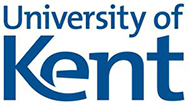
University of Kent
The University is one of the country’s leading academic institutions producing world-class research, rated internationally excellent and leading the way in many fields of study. We are a forward-thinking research institution, committed to the transformative power of education and research and to the development and support of our students and staff. The Kent Interdisciplinary Research Centre in Cyber Security (KirCCS) at the University of Kent harnesses expertise across the University to address current and potential cyber security challenges. It represents the University of Kent as a UK government recognised ACE-CSR (Academic Centre of Excellence in Cyber Security Research), one of only 19 such centres in the whole UK.
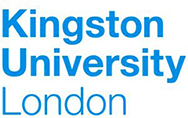
Kingston University London
Security Research at Kingston University is primarily undertaken in the well-established Digital Information Research Centre within the School of Computer Science and Mathematics. The School is led by Prof Brujic-Okretic with the research centre being led by Professors Politis and Nebel as School Director of Research and Enterprise, encompassing over 20 active research staff and 60+ PhD students over the past 5 years. Research is supported by a range of grants and industrial collaborations including with GCHQ/NCSC in cyber security. Priority research areas currently include: machine learning for computer vision (UAV) with error resilient video transmission, next generation network standards, applications and security, incl. ad-hoc networks and Cyber security, including smart grid security. The last research area was supported by an internal investment from the University to create an Academic Centre of Excellence in Cybersecurity Education and Culture which included additional staff and funding for PhD students as well as other activity. This centre includes research, teaching and industrial liaison and is run by Dr Pickard. In addition to research, Kingston University has a fully NCSC accredited MSc in Network and Information Security and a very well regarded and popular BSc in Cyber Security and Computer Forensics.

Lancaster University
Lancaster was established in 1964, and has been identified as an educational and academic pioneer ever since. It ranks in the UK’s Top 10 according to the Guardian, the Times and Sunday Times, and the Complete University Guide. What’s more, Lancaster is ranked 137th in the THE World University Rankings 2016-17, and 129th in the QS World University Rankings 2016-17. Lancaster is also among Europe’s elite universities, ranking 59th in the THE Best Universities in Europe 2016. Lancaster is ranked 13th for world-leading research assessed through the Research Excellence Framework. The School of Computing and Communications (SCC) is housed at Infolab21 – a centre of excellence in ICT and is ranked 7th in the UK for world-leading and internationally excellent research. Our grants portfolio exceeds £12M and supports work that crosscuts traditional research fields, is strongly multidisciplinary and focuses on achieving high impact. Our work contributes substantially to a wide range of application domains including energy, transport, cyber-crime and social computing. Achieving impact is facilitated by our Knowledge Business Centre (KBC), SCC’s integrated business services and incubator unit. This comprises around 15 dedicated staff, maintains extensive contacts with local and national businesses, and houses a number of high-tech SMEs.

Leeds Beckett University
Leeds Law School offers a variety of degree programmes from the LLB, LLM, GDL, LPC and post graduate research degrees including PhD. While there is a diversity of areas of law researched by the School’s staff the two main areas are Terrorism & Security and Human Rights and Legal Education. The School regularly runs symposia in these two areas with selected papers published in edited books. In addition to publication of the School’s staff research, Leeds Law School is active in researching and working with practitioners that includes the North East CTU (Prevent) and regional Home Office staff.

University of Liverpool
Founded in 1881 as the original ‘red brick’, the University of Liverpool is one of the UK’s leading research-intensive higher education institutions with an annual income of £545.7 million, including £95.6 million for research. Consistently ranked in the top 200 universities worldwide, we are a member of the prestigious Russell Group of the UK’s leading research universities and have a global reach and influence that reflects our academic heritage as one of the country’s largest civic institutions. Our global focus has led to the establishment of a university in Suzhou near Shanghai, as well as partnerships with research institutes, universities, industry, governments and foundations all over the world. At the forefront of innovation and discovery, academics and researchers at the University of Liverpool are advancing knowledge to improve lives. Our interdisciplinary research, unique model for collaborations and cutting-edge facilities enable our research community to create global solutions aiming to improve health, create wealth and ensure social justice. We are driving breakthroughs in developing new materials with large-scale applications in both industry and consumer products, enhancing the personalisation of health management, and progressing the battle against infectious diseases.

Loughborough University
Loughborough University has an international reputation for research that matters, teaching excellence and successful partnerships with industry. The University has long-standing collaborative links with many international corporations, public and private sector organisations as well as partnerships with numerous start-ups and SMEs nationwide. These collaborations develop solutions to real-life challenges – bringing together outstanding research capabilities with industry expertise to drive innovation, enhance productivity, shape public policy, and improve the quality of people’s lives. Expertise at the University is wide-ranging and encompasses diverse research strengths, driven by all 10 of our Schools. Our CALIBRE Framework combines these strengths to develop multi-disciplinary solutions to the biggest societal challenges of our time. A key focus within the Framework is our Secure and Resilient Societies Global Challenge, which encompasses research into Disaster Risk Management, Defence and Security, and Population Resilience.
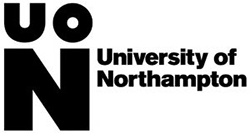
University of Northampton
As one of the universities to be ranked Gold in the Teaching Excellence Framework (TEF), the University of Northampton knows that sharing knowledge, supporting creativity and striving to make a positive difference will change the future. What motivates us is the drive to help people make the changes that will transform their lives. We are one of the youngest universities in the UK but we are already leading the way in adding value to society, which we call social impact. We have won multiple awards for our work in this area, among others, but what matters the most to us is ensuring that our students and graduates have the opportunity to make their mark on the world too. That’s why we were the first university in the UK to be named as an Ashoka U Changemaker Campus in 2012.

University of Oxford
The University of Oxford is known internationally for its long history and consistent pursuit of the highest standards in research and education. Our prowess in the sciences is particularly noteworthy: we have been ranked number one in the world for several disciplines, including Computer Science for the last two years, by the Times Higher Education Supplement, and ranked in the top six globally in engineering, life sciences, social sciences and the arts and humanities. These strengths are combined in a variety of inter-disciplinary activities, facilitated by the University’s unique structure. In Cyber Security, for example, a network spans NN Academic Departments, incorporating MM academics. Similar networks address Energy, Climate Change, Quantum Technologies, and other 21st Century Challenges.

Queen’s University Belfast
Queen’s University Belfast is ranked 22nd in the World for ‘International Outlook’, 7th in the UK for research intensity, and 100% of its Electrical and Electronic Engineering research impact was judged to be internationally-excellent or world-leading in the 2014 REF exercise. QUB’s Institute of Electronics, Communications and Information Technology (ECIT), is a multi-award-winning Global Research Institute. It is the anchor tenant at Catalyst Inc., one of the UK’s largest research and innovation campuses. Tackling challenges associated with digital growth, ECIT is addressing cybersecurity, redefining wireless communication and sensing systems, and developing new machine intelligence techniques and underpinning technologies for information superiority and increased autonomy under the agenda setting theme of Secure Connected Intelligence. The ECIT Institute has range of world-leading research collaborations with 119 organisations across 32 countries. ECIT’s Centre for Secure Information Technologies (CSIT), was one of the first centres to be recognised by the EPSRC and GCHQ, and subsequently the NCSC, as an Academic Centre of Excellence in Cyber Security Research in 2011, it has since won the Queen’s Anniversary Prize in 2015 for its world leading research and economic impact on the UK economy.
SPRITE+
SPRITE+, the Security, Privacy, Identity and Trust Engagement NetworkPlus brings together people in academia, industry, government, law enforcement, and civil society organisations with a focus on digital contexts. It is a ‘one stop shop’ for engagement between academic and non-academic communities and a platform for building collaborations. The project is funded from 2019-2023 by the EPSRC as part of its Digital Economy programme (grant reference EP/S035869/1). SPRITE+ is led by Professor Emma Barrett (University of Manchester) with co-Directors Dr Stacey Conchie (Lancaster University), Professor Bill Lee (Imperial College London), Professor Sakir Sezer (Queen’s University Belfast) and Professor Vladimiro Sassone (University of Southampton).
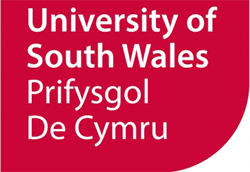
University of South Wales
At the University of South Wales, it’s all about being bold, independent and fulfilling your potential. We are one of the largest universities in the UK, offering our students excellent opportunities and prospects. We have campuses located in Cardiff, Newport, Pontypridd and Dubai — with 95% of our graduates in work or study within six months of graduation (DLHE 2016/17). The International Centre for Policing and Security (ICPS) at the University of South Wales (USW) is a Research Centre of Excellence and a policy/practitioner think tank that focuses on Policing and Security in a European and international setting. Vision and Values: “To provide our customers with excellent quality, ethical research grounded in the practical world of policing and security, which informs, educates and assists in the delivery of services.”
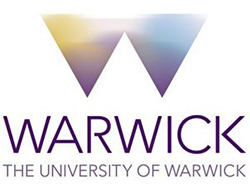
Warwick University
The Warwick Manufacturing Group is a world leading research and education group, transforming organisations and driving innovation through a unique combination of collaborative research and development, and pioneering education programmes. As an international role model for successful partnerships between academia and the private and public sectors, WMG develops advancements nationally and globally, in applied science, technology and engineering, to deliver real impact to economic growth, society and the environment. WMG’s education programmes focus on lifelong learning of the brightest talent, from the WMG Academies for Young Engineers, degree apprenticeships, undergraduate and postgraduate, through to professional programmes. An academic department of the University of Warwick, and a centre for the HVM Catapult, WMG was founded by the late Professor Lord Kumar Bhattacharyya in 1980 to help reinvigorate UK manufacturing and improve competitiveness through innovation and skills development.

University of West London
Primarily based in the famously leafy London borough of Ealing, the University of West London (UWL) boasts high quality teaching and impressive employment rates after graduating. The University prides itself on being ‘The Career University’, with 98% of students in work or further study within six months of graduation (HESA Employment Indicator 2018). The University also recorded the biggest rise of any university in the UK in the prestigious The Times and The Sunday Times Good University Guide 2020, climbing an impressive 31 places to number 52 nationally and entering the top 10 London universities in 8th place. Across its nine academic schools, the University offers a great variety of undergraduate and postgraduate courses with a strong focus on employability and practical experience, all taught by academic staff with a great degree of experience. The University has invested almost £150 million to create a modern campus that is jammed packed with facilities, excellent student services, quality teaching and extra-curricular activities to create a supportive learning and social environment with a real community feel. But the real secret to its success is our students – the University has one of the most diverse student bodies in the UK who are full of potential, passion and energy. By listening to their students all-year round, UWL can deliver on the things that matter to them, creating an excellent student experience and providing them with the skills they need to build a successful career.

The University of Winchester
The Department of Digital Technologies is an exciting new department blending Computer Science, Cyber Security, Data Analytics, and Artificial Intelligence with Digital Media Design and Development, Computer Aided Design, 3D Printing, Augmented Reality and Virtual Reality. We are investing £50 million in state-of-the art facilities which will include specialist labs for Cyber Security and Digital Forensics, Software Engineering and Enterprise Networking, as well as Digital Innovation, AR/VR/3d and Motion Capture. Digital Technologies’ students will have access to a wide range of specialist software and tools in order to gain necessary skills to develop innovative, and data-driven solutions to solve complex IT/Digital problems involved in the protection of data, systems and cyber security. Students will have invaluable networking opportunities with industry professionals and opportunities to work on client-based projects to increase experience and develop dynamic online professional portfolios to showcase their achievements to future employers.
































